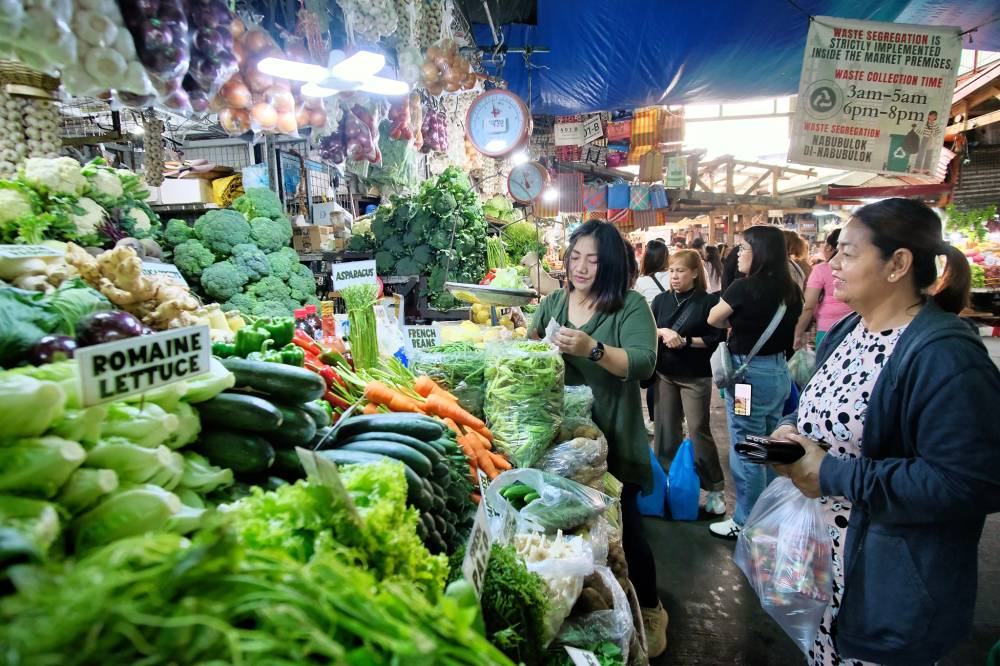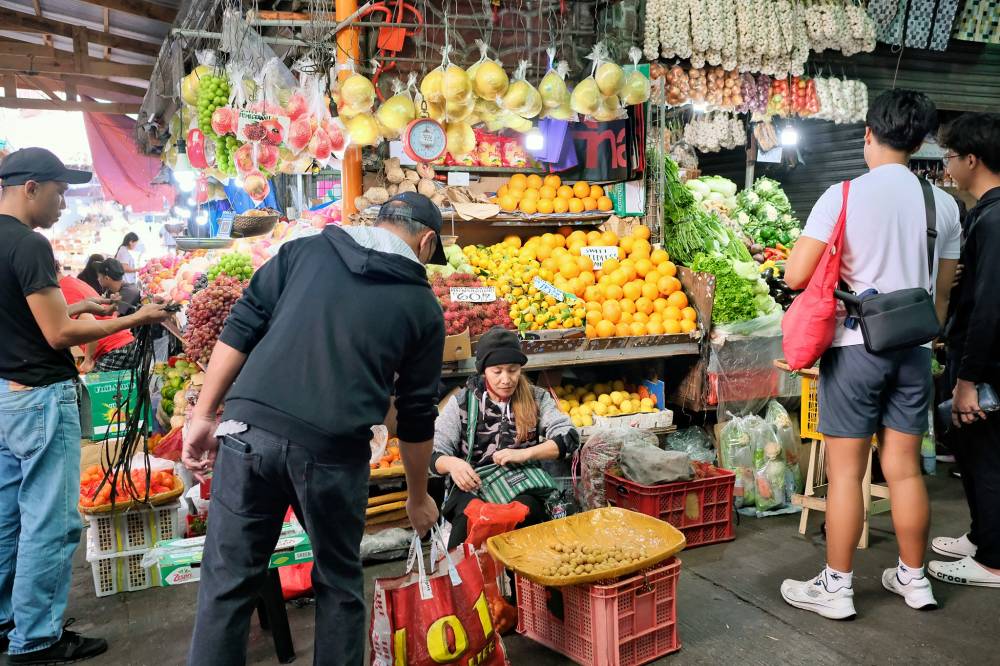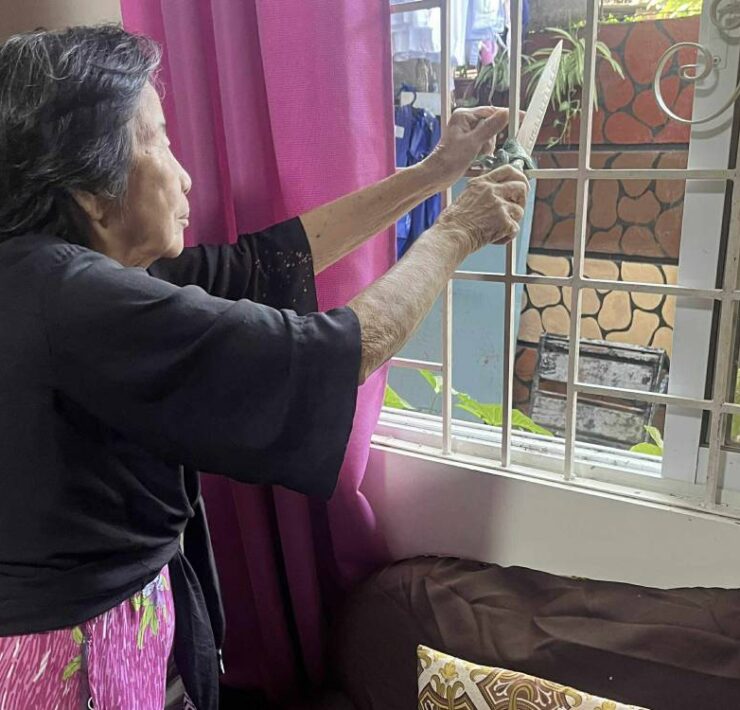‘Salamat, suki’

Those who know me as once coming from the “I bought it myself” school of hostessing will be surprised to know that there was a phase in my Baguio homemaker’s life when I was, shall we say, laman ng palengke.
My young family had just moved to Baguio to restart our lives in June of 1992. My husband, Rolly Fernandez, had been accepted as a full-time assistant professor in journalism at the then University of the Philippines Baguio.
I had no paying job to speak of. We lived, or survived, on his paltry professorial salary. Our two daughters went to public schools, which helped cut down the cost of living.
We further cut the cost down with Rolly doing the marketing at the “hangar” section of the public market, where veggies and other goods were sold cheaper. He had to make the effort to climb the steep pedestrian walkway to the hangar or “banger,” whichever was the term in use.
He developed his own suki (favorite vendors) network among the bangus and meat vendors.
Came a time when he was swamped with correcting school work, and he left the marketing duties to me. I welcomed the chore as a way of escaping the drudgery of housework.
Unlike him, who could draw up a weekly menu based on available goods, I painstakingly wrote out a list of ingredients to buy based on a planned menu in my head.

Memories
Going to the market brought back memories of my grandmother, who used to take us there when we were children. My sister Pinky recalls that Lola would even bring used clothes in still good condition to trade with the vendors. Sweaters she had outgrown were her form of payment for vegetables.
Another outstanding childhood memory was how everything came to a complete halt at the moment the 12 noon Angelus bells rang. Lola or an older cousin would be in the middle of a transaction, like handing the money over to the seller, when everything would freeze, the vendor would make the sign of the cross and together we’d pray, “The angel of the Lord declared unto Mary. And she conceived of the Holy Ghost.”
Even vehicular traffic came to a standstill until the sound of the piercing siren ended. Such was the pace of Baguio living.
As a young housewife intent on removing my kids from the clutches of the malling culture in Metro Manila, the market was where we went for the start-of-the-school-year needs like shoes at Berting’s. I had my kids, Kimi and Ida, measured for their school uniforms at Maharlika Livelihood Center. I also bought their clothing material there, making sure there was allowance for the lengths of their skirt so that the following year, I could just rip off the hemline of said skirts to lengthen them. I considered these meditative activities. I did these, of course, with music playing in the background.
I loved that I could find such things as panocha and freshly grated coconut meat in the market. I taught myself to chop the panocha, then melt this raw sugar in very hot oil until it starts caramelizing. That was the cue to slowly slide in the saba bananas for my children’s after-school merienda.
The extracted milk from the coco meat went to the ginataang bilo-bilo on some days.
The market helped set the rhythm of my days as I peeled the Ilocano garlic, chopped the violet onions from the Vizcaya, diced the tomatoes from Benguet. I wasn’t acutely aware of the origins of these basics for a guisado dish, but I could imagine or remember the face of the man or woman who sold them to me. Always with a smile and a “Salamat, suki.”


















